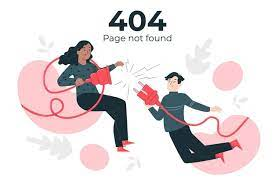September 12, 2020

The content management system also popularly referred to as CMS is a website management software. CMS provides a user-friendly interface to create, collaborate, edit, archive, and manage your website’s content. Thus, it helps eliminate the need to hand-code a website.
The most popular CMS is an open-source software called WordPress. In general, open-source means that the source code is freely available and can be redistributed or modified. Software like these allows anyone to make instant customizations to the website.
Though CMS is a powerful tool that has evolved significantly, it has its flaws, and being aware of them will help you make informed decisions.

Nearly all popular CMS platforms are on professional hackers’ hit list. WordPress alone powers 60% of the websites. A hacker does not need a better reason to mine data and make a quick buck. Furthermore, cybercriminals intend to hack and destroy website businesses operating on CMS. These activities can prove to be catastrophic if your business relies on online leads, sales, and revenue. Once hacked, the SEO ranking drops down and negatively affects customer trust.

Visitors usually have a shorter attention span. If a website doesn’t load fast enough, users will bounce onto the next website. Also, Google prefers fast-loading sites with constant updates. CMS is data-driven, as the website becomes bulky, the loading time also increases which is not preferable.

CMS platforms are prone to hackers. To stay on top and provide secure services, they constantly update their services and these updates are released to patch faults of previous versions. Most of the time, the software update will be smooth and will integrate with the existing theme and plugins. However, there are situations where the currently used themes and plugins do not recognize the update and behave differently. When this happens, it affects the functionality of the website and reflects negatively on the business. If the issue is not resolved on time, it will tamper with the business workings and ultimately incur losses.

CMS comes with financial hidden costs as well. It might be in the form of paid plugins, themes, premium updates, and many more. Superficially, it looks well and good to have a highly affordable website. But if you are planning on expanding your customer base and adding functionalities to a base website, it comes at a hefty price.

There are so many themes and templates offered by the CMS platforms. These are either free or paid. Most of the time the one that resonates with your business would be paid. Regardless of the cost, even the best of themes will not be a perfect fit and it will need modification to satisfy your business needs. After all the hard work, you realize the same theme can be found on multiple websites. Therefore, it leads to a loss of individuality which can be frustrating.

Not every theme developed will use the same combination of programming languages. To edit a theme and incorporate changes, will require expertise. If you are a budding business and decide to hire a person to take care of the website needs, training will be required. Training will include everything from the understanding of the interface to adopting the coding style.

CMS is great because you can find a plugin, for any functionality in mind. On the flip side, too many plugins slow down the website making it undesirable for visitors. Additionally, not all plugins are reputable. Thus, you need to make sure it has good reviews and higher ratings. Another point to be noted is that not all plugins are followed through by the developers. If your plugin is outdated, it will be vulnerable to hackers jeopardizing the integrity of the website.

It is not always possible for a plugin to provide a solution to your functionality requirement. Situations may arise where building a custom application is the only solution available that can solve your needs. In such cases, CMS does not offer the flexibility to do so. This will leave you with no choice but to build a customized website from scratch.

Similar to custom applications, custom integrations cannot be integrated into a CMS website. These custom integrations are software applications developed by a third-party vendor. Opting for custom integrations is a great way to cut down the time taken to build a website.

It’s an excellent strategy to have a niche target audience. But what if your target audience is not native English speakers and is of different cultural backgrounds? What if you expand your business operations to a non-English speaking country? How do you cater to them?
Many CMS platforms do not support multilingual websites and pages. You would need to hire a dedicated developer to resolve this hurdle. You need to ensure that multilingual service is provided before you decide on a platform.

The most popular CMS platforms are open-source, which are good for rapid development and enhanced functionality. But it is not so good for support, as it is not possible to hold anyone accountable for glitches and irregular behavior in open-source software. There will be community forms in CMS that will help resolve your issues but it is a very slow process and it is not 100% reliable.
CMS is good to create a basic website but if your business needs an advanced and functional website, then you need to consider building a customized website. Web application builders like Workik can add functionalities to your website with its pre-built custom web pages by cutting down the time to build a website. These can be easily integrated into any website while ensuring minimum downtime. These applications are highly customizable to cater to your diverse needs. We also provide aftercare services, ensuring stress-free integrations and operations. Contact us to know more.
.